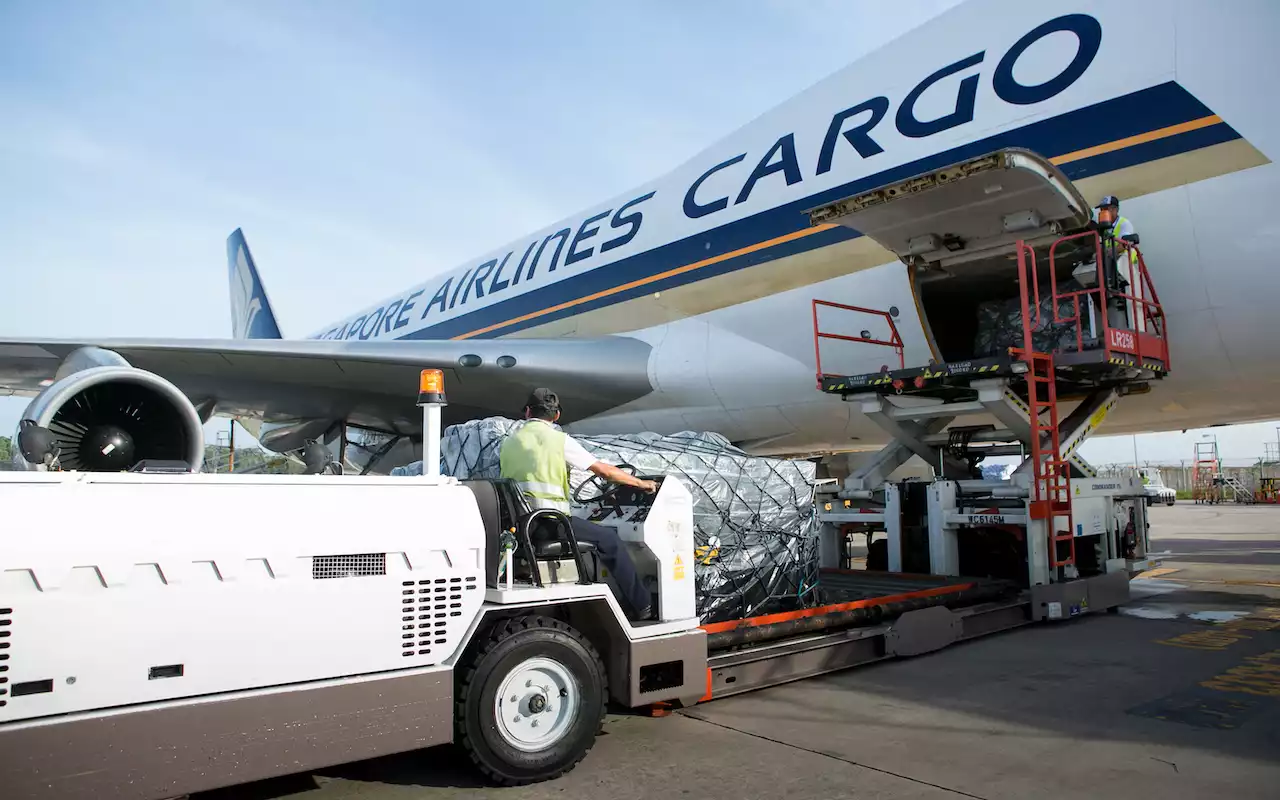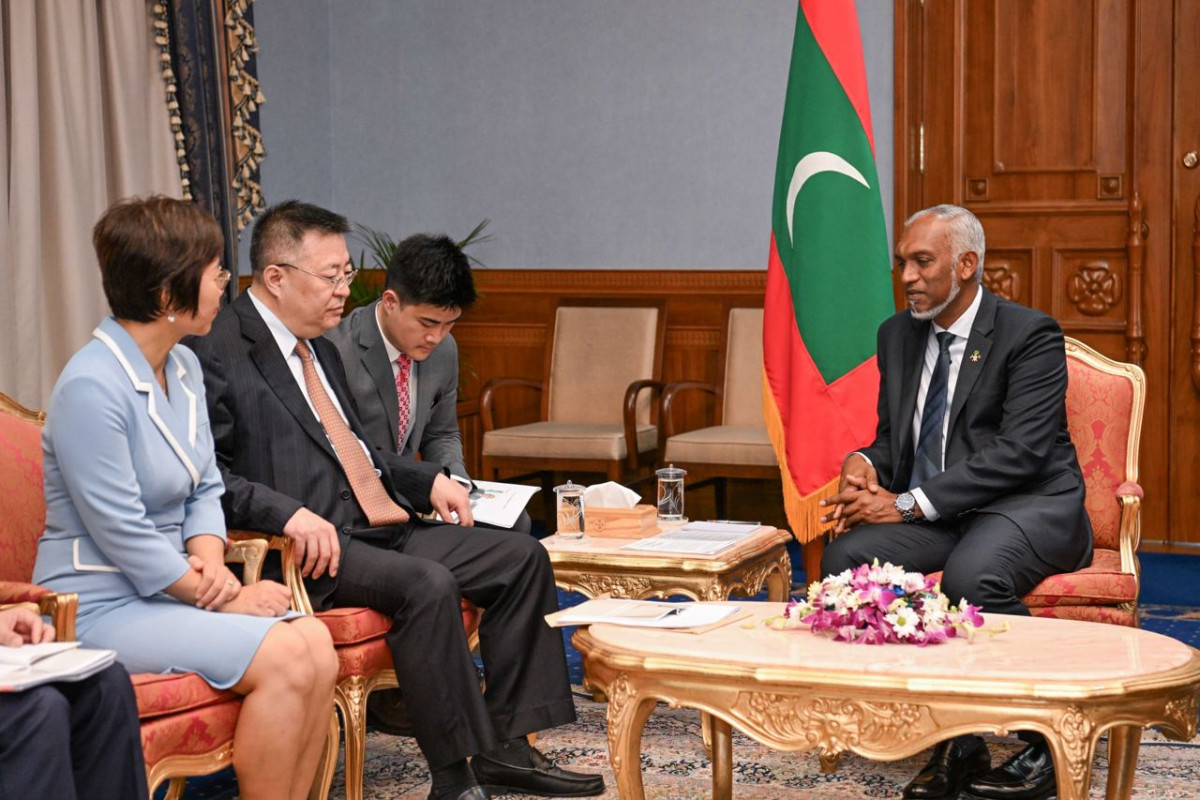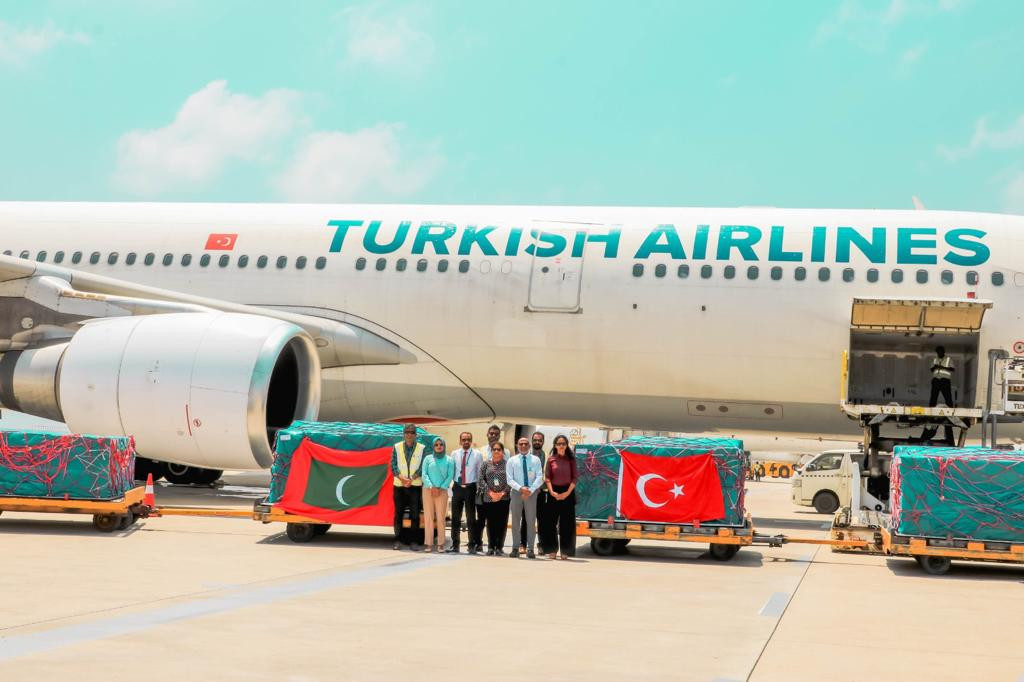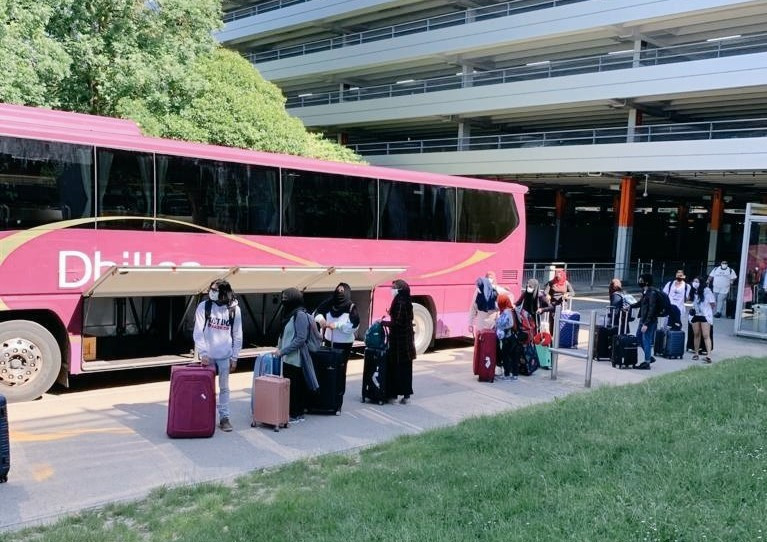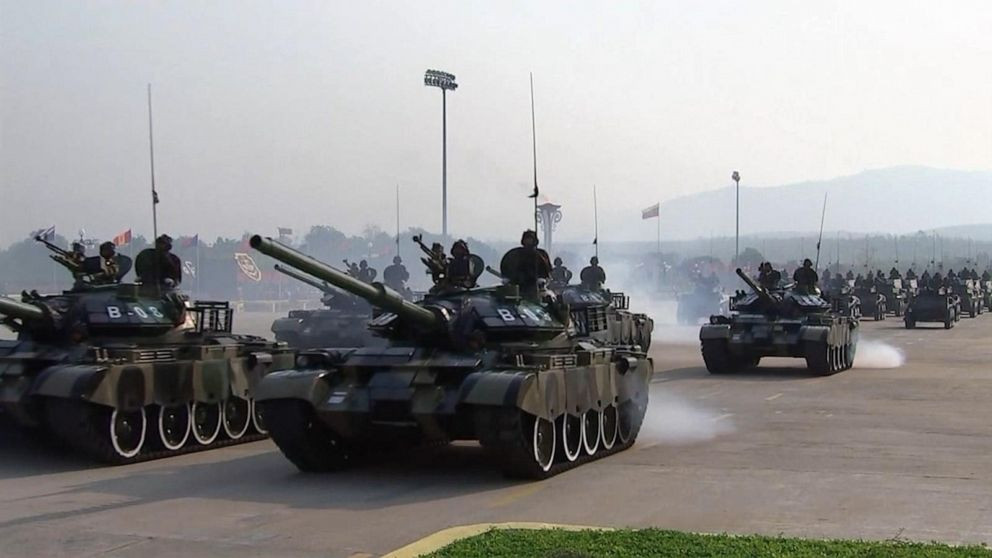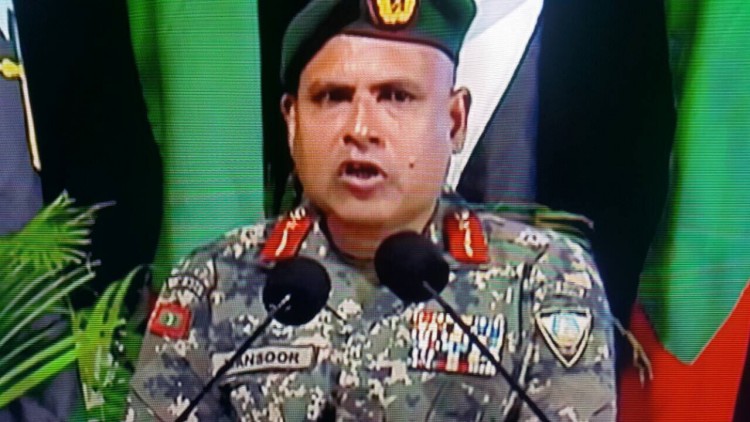Maldives ex-president's conviction - indeed 'a travesty of justice'
Supreme Court on Monday proved that that the terror charge against former President Nasheed was a shame


Thousands gathered in capital Male\' to welcome former President Mohamed Nasheed on November 1
Maldives’ top court on Monday proved that that the terror charge against former President Mohamed Nasheed, and his subsequent conviction and jail sentence, were a shame.
The Supreme Court did not just overturn the Criminal Court ruling, it criticized the lower court for accepting and proceeding with the charge against the human rights defender, which it declared as ‘void’ from the beginning.
And just like that, after nearly four years of being deemed a terrorist, the former president is once again a free man.
A “Hasty and Unfair” trial
Both the local and international had expressed concern over his trial and treatment in detention. Photo: AP
Nasheed, Maldives’ first democratically elected leader, was arrested on February 22 on charges related to his 2012 decision to arrest a senior judge. He was charged under anti-terrorism laws.
While then prosecutor general- who was later convicted of terrorism himself- had initially pressed criminal charges against Nasheed over the incident, it was later withdrawn only to raise terrorism charges against him. An arrest warrant was issued soon after as well, claiming that he was a flight risk.
Despite concern from both the local and international community, the three-judge bench unanimously found Nasheed guilty “of arresting and illegally detaining judge Abdulla Mohamed” and was sentenced to 13 years in prison.
“The prosecution’s evidence proved beyond reasonable doubt that Nasheed ordered the chief judge’s arrest or forceful abduction and detention,” reads the verdict.
The conviction came just 19 days after his arrest, and amid concerns that he was being denied basic rights. At one point, he was thrown to the ground by police and dragged to court, for interacting with reporters infront of the court. While he was reportedly injured in the incident, authorities had initially refused to provide him treatment.
Days before the sentence, Nasheed’s lawyers resigned “in protest of the Criminal Court’s refusal to provide sufficient time to mount a defence on terrorism charges.” They had argued that it was “impossible” to provide Nasheed with proper legal counsel without sufficient time.
In April 2015, Nasheed’s team announced his international legal team to represent him in the international arena including the United Nations Working Group on Arbitrary Detention (UNWGAD).
From the very beginning, Nasheed’s Maldivian Democratic Party (MDP) described the charges against him as ‘politically motivated’.
Following his conviction, countries such as India, United Kingdom and United States expressed concern over his trial and treatment in detention while organizations such as Amnesty International described the 13-year-sentence as “a travesty of justice.”
Furthermore, UN High Commissioner for Human Rights Zeid Ra’ad Al Hussein also expressed concern over the “hasty and apparently unfair trial.”
“This trial began one day after the former President’s arrest and was completed after 11 hearings in 19 days. It is hard to see how such hasty proceedings, which are far from the norm in the Maldives, can be compatible with the authorities’ obligations under international law to conduct a fair trial,” the High Commissioner had said.
Furthermore, In October 2015, UNWGAD called for Nasheed’s immediate release, ruling that his conviction was politically motivated and violated international treaties the Maldives is party to.
However, the Maldivian government rejected the decision, announcing that it “will not be made to act on the basis of a non-binding opinion.”
UK stands with the ‘terrorist’
January 2016: Former President Mohamed Nasheed and international legal team call on then UK Prime Minister David Cameron. Photo: AFP
The former president was allowed to travel to United Kingdom for medical treatment in January 2016, where he was granted political asylum shortly after.
Since then, as a number of other opposition leaders, Nasheed opted to work from exile; he has since said that he chose to stay away as he could do more for the country from abroad, rather than a jail cell.
Ex-President Yameen’s niece; his biggest defender
Then Foreign Minister Dunya Maumoon at a press conference in Colombo, Sri Lanka. Photo: AFP
Maldives’ then-top official to the international community, Foreign Minister Dunya Maumoon took every opportunity to remind “international partners, the media and other stakeholders” of the “seriousness” of Nasheed’s case.
Dunya had been the most vocal in fending off the criticism directed towards her half-uncle’s government over the matter.
"The trial was conducted in accordance with the relevant laws and criminal procedures prevailing in the Maldives. Due process was followed and president Nasheed was accorded his rights fully," she said at a press conference held in Colombo, Sri Lanka in March 2015, adding that “a free and fair trial has happened and no person, whether former president or not, is above the law”.
She even told the international community that President Abdulla Yameen’s government was not looking for their opinion, further expressing confusion over ‘why foreign countries do not understand that Nasheed’s case was conducted within the constitutional and legal boundaries no matter how much the Maldivian government tries to explain it’.
Dunya reiterated that Nasheed was convicted over the "kidnapping and abduction of an innocent person" and that such activities were "linked to terrorism in the Maldives legal system".
She was also accused of misleading the United Nations Human Rights Council regarding the opposition leader’s terrorism trial.
Everyone’s singing a different tune now
Maldives Supreme Court in capital Male'. Photo: RaajjeMV
Former Minister Dunya was one of the many individuals to congratulate Nasheed following Monday’s Supreme Court verdict.
Dunya did not just send a public congratulatory message via twitter, she also shared a photo of her with whom she had so vehemently described as a terrorist.
This is not Dunya’s first attempt to cozy up to the new ruling coalition since President Ibrahim Mohamed Solih’s win in September’s election.
Back in October, Dunya told local news outlet ‘Avas’ that she does not accept the former president’s conviction.
Claiming that she had seen numerous cases of misconduct when she worked in the administration, Dunya had said that Nasheed’s trial had “especially” been rushed.
In addition to Dunya, Supreme Court has also changed its tune in the case. It had in June 2016, upheld Nasheed’s 13-year prison sentence.
However, according to Monday’s verdict, Nasheed was “wrongfully charged” and there was no room to even try Nasheed on the terror charges raised against him. It criticized the Criminal Court for proceeding with the case in the first place.
Furthermore, while the lower court had ruled that “the prosecution’s evidence proved beyond reasonable doubt that Nasheed ordered the chief judge’s arrest or forceful abduction”, Supreme Court now says that that despite Judge Abdulla being kept in Girifushi island of Kaafu atoll, that “it is clear that he had not been abducted or kidnapped”.
The ruling also noted that the prosecution had failed to provide sufficient evidence to prove the charges against Nasheed.
Rights deprived
Former President Mohamed Nasheed being taken to court on February 23, 2015. Photo: AP
Shortly after Nasheed’s conviction, in April 2015, an amendment was passed and ratified to the Jail and Parole Act which disqualified him from his leadership position of MDP. The amendment stated that a person executing a prison sentence cannot hold leadership of a political party.
The man often described as the ‘Mandela of Maldives’ was not only forced into self-exile for nearly four years, he was also barred from running in this year’s presidential election.
Because of this, then-opposition coalition had opted to field a common candidate for the election, who took victory over Abdulla Yameen and ended his authoritarian rule.
